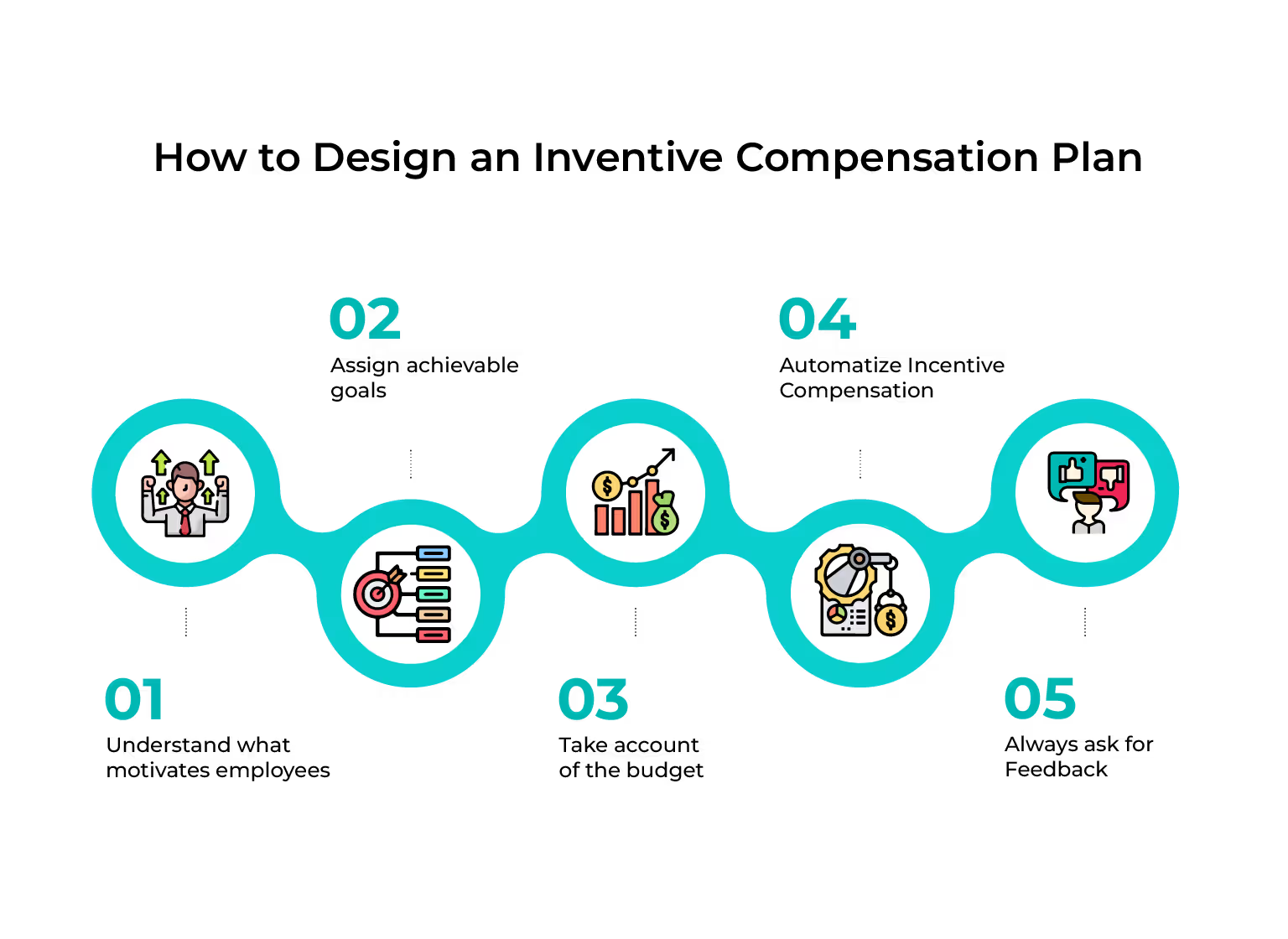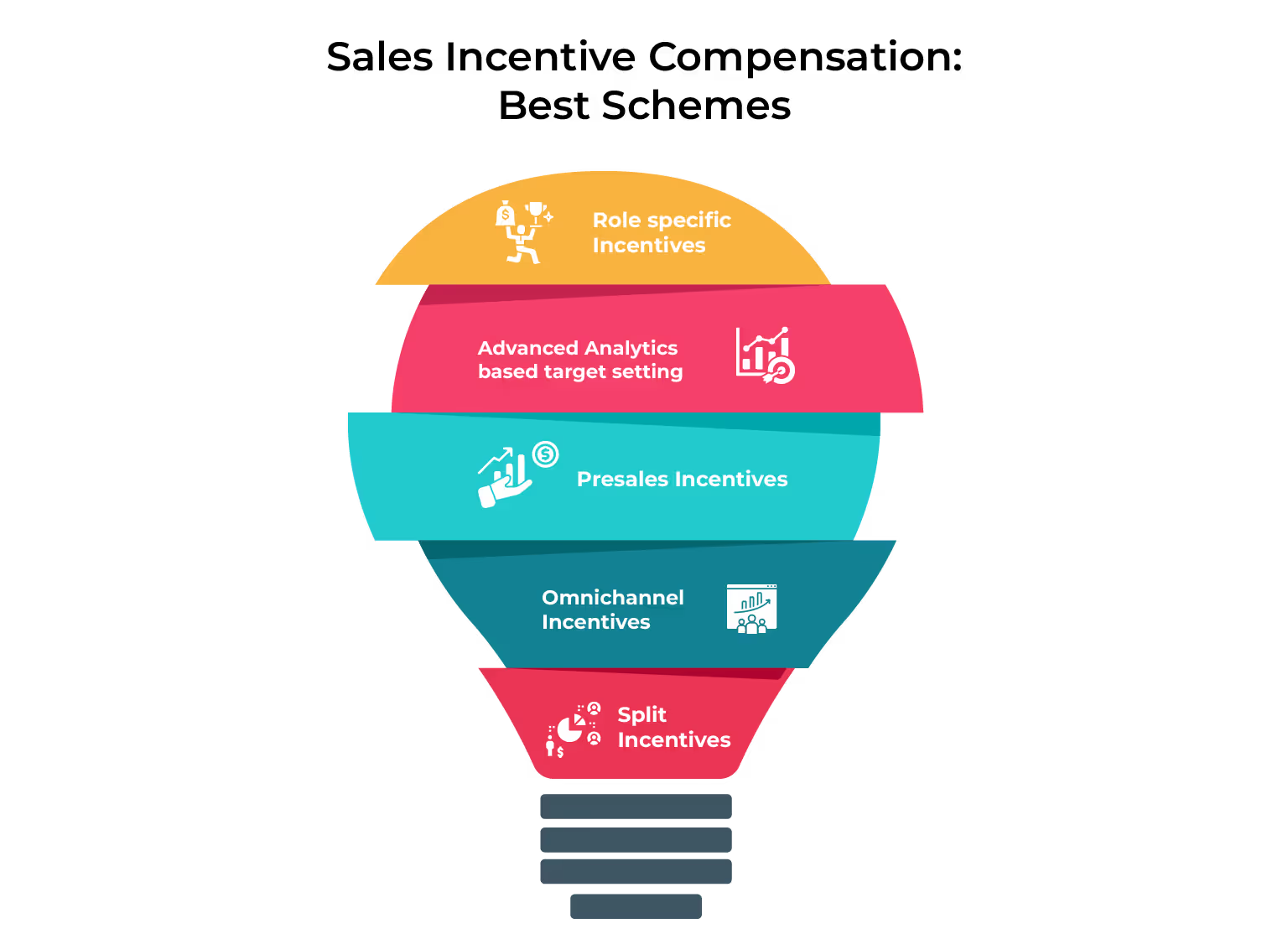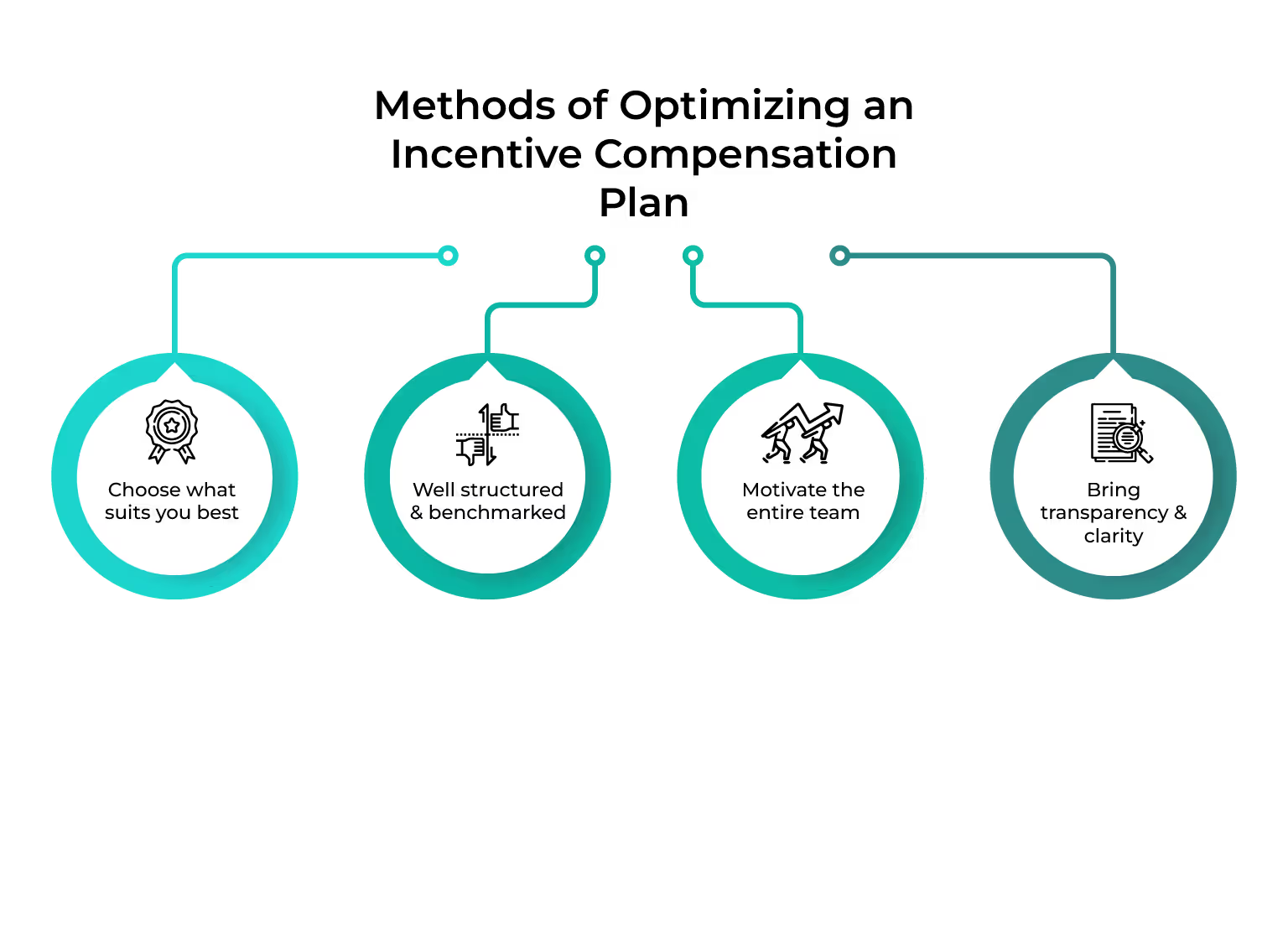
Blog
Understanding the Basics of Sales Incentive Compensation
July 25, 2022


Key Insights
Motivation is an internal process where each individual strives to attain something with a set objective in mind. It lays a condition inside an individual that wants to take action when they are motivated.
However, motivating your sales team is not that simple!
This is where commission-only sales reps shine as a powerful motivational force. With their earnings directly tied to their sales performance, these reps are inherently motivated to consistently strive for their best, maintaining high levels of operational revenue. The prospect of earning substantial commissions serves as a constant driving force, compelling them to go the extra mile in pursuit of sales targets, ultimately benefiting both their individual success and the company's bottom line.
A simple well designed performance-based sales incentive compensation plan acts as a perfect tool to drive better business outcomes. Stats show us that the sales team that implements the incentive program sees a hike of 79% in reaching their goals by offering the correct reward.
The only catch while designing the incentive plan, including OTE compensation, is that it is not that easy. This is why let's have a look at some of the best plans and designs that should be implemented while structuring an incentive compensation plan, with a special focus on OTE compensation.
What is Sales Incentive compensation?
Sales incentive compensation is the variable pay that the sales reps earn above their fixed base salary. Studies show that there is an increase of 44% in sales rep performance, leveraged retention rate and brand recognition if sales compensation programs are designed well.
To ensure that sales reps work with utmost enthusiasm towards the organizational objectives, it is crucial to develop individual incentives that keep them driven and motivated.
While this may seem obvious, its significance cannot be overlooked or underestimated.
Generating a successful incentive plan is more often like tapping into the employees’ psychology and once you do that you will win at all levels.
Sales Incentive compensation: Why do you need it?
A well-structured sales incentive plan can help your team in many ways:
- Incentivizing your sales performance motivates sales reps to strive towards their targets and goals.
- Getting rewarded for your achievements ensures best practices from the sales reps as well as dedication and commitment towards the organization.
- Sales reps feel a sense of belonging in an organization which improves employee retention and engagement.
- Incentives also encourage the sales team to better strategize their sales plan and improve teamwork and coordination.
How to Design an Incentive Compensation Plan

Understand what motivates employees
A brief research on the employee, their needs and requirements and their driving force will provide a better understanding for designing an efficient and effective sales incentive compensation plan. Knowing what they need and offering it will ensure better sales motivation and performance from the sales reps.
Assign achievable goals
It is upon achieving their sales quotas and targets that a sales reps become eligible for incentives. Hence, it must ensure that they are assigned attainable sales goals that motivate them to strive and achieve the quota. If management gives high sales quotas it will hinder the performance of the sales reps and make them feel overburdened and unmotivated to work smart.
Take account of the budget
When a management designs their incentive compensation, they must ensure that there is clarity and calculation of the budget specifically allocated for what is known as a sales compensation plan, which refers to a structured approach in determining how sales representatives are rewarded and motivated based on their performance. This includes considering various sales incentive plan examples such as commission-based models, bonus programs, or tiered reward systems, allowing for the efficient and timely fulfillment of incentives.

Automize Incentive Compensation
Automation ensures an effective tracking of sales performance and efficient calculation of incentive compensation. Incorporating digital solutions helps in quantifying sales performance and makes the salesforce incentive compensation transparent. Making the routine incentive calculation effortless and efficient makes the operations seamless.
Always Ask for Feedback
Designing an incentive compensation is not a one-time job. To ensure the consistent effectiveness of a good salesforce incentive compensation plan, it must be put under scrutiny regularly. Especially the beneficiaries of the plan, the sales reps, must be consistently asked for feedback to ensure it brings the effectiveness it was intended to. Implementing the right sales concept ensures ongoing relevance and adaptability in a dynamic business environment.
Following this step-by-step process will help you in effective sales incentive program management.
Sales Incentive Compensation: Best Schemes
Designing the best Sales Incentive plan starts with a clear understanding of the Incentive schemes. So, have a look at the best 5 sales incentive schemes:

Role-specific incentives: This must be used when you specifically want to motivate individual reps to outperform their previous targets.
Split incentives: This must be used when you want reps to come together and close a certain deal. This will motivate reps to work together as a team so consider using the split incentives whenever you want team collaboration
Presales incentives: Sales reps have to go through different stages during the selling process. It so happens that reps might lose their motivation to close the deal with consistent efforts. Therefore, setting rewards at different stages will help focus their efforts throughout the selling process.
Omnichannel incentives: With the development of the digital sales channel, more and more sales are achieved partially or exclusively through the internet. However a large number of salespeople struggle when the digital solutions become an additional competitor. However omnichannel incentives prevent this by rewarding sales reps in all cases even if the internet attracts the customer first.
Advanced-analytics-based target setting: In complex sales scenarios, setting reasonable targets and quotas can be challenging. To overcome this issue, utilizing on target earnings based on advanced analytics can be highly effective.

Types of Sales Incentive: Monetary and Non- Monetary
Monetary incentives:
None can deny the fact that monetary incentives are the best and effective motivator. According to the Aberdeen Group nearly 50% of the best companies use cash-based incentives to increase their profits by motivating the reps.
Consider setting the following monetary incentives:
Bonuses: Bonuses are one unique sale variable incentive compensation that works as a motivation factor for both sellers and non-sales employees. These are used when there is a specific task that needs to be completed during a specific period. So, the amount that will be awarded for the achieved goal is known as bonuses.
Sales Performance Incentive Fund (SPIFs): SPIFFs or SPIFs are an exceptionally effective short-term incentive. It’s sensible enough to use SPPIFs in addition to a sales commission structure. In the given specified period of time when we use these, the seller shifts his focus on the most important product releases or to address increasing competition.
Sales Commission Structures: This is one of the most liked and accepted ways to build out incentive compensation. Incentive structure for sales go into great detail on how reps earn money. They can be structured in a simplified way which calculates the straight percentage of revenue from every single deal a rep closes (known as a “straight commission”), or more intricate, by taking into consideration the percentage of quota completion. Another popular approach is the tiered commission structure, which rewards reps differently based on their sales performance tiers.
Non-Monetary Incentives:
Non-monetary incentives are budget-friendly so if your finance team does not give you a green signal then you can go for this one. They’ve proven to be more effective and about 50% of sales reps say they prefer reward experiences.
Methods for Optimizing an incentive compensation plan

- Choose What Suit You Best
Well by now you know the options and varieties available. To bring the best out of your incentive plan, care must be taken right from the start to choose an incentive plan that best suits your organizational structure, operations as well as the requirements of the employees.
- Well Structured and Benchmarked
There should be a clear cut idea to both the management and the sales reps about the incentive program. It must be well structured with proper demarcation about the attainable and realistic benchmarks that will make a sales person eligible to regard.
- Motivate The Entire Team
A good incentive compensation plan must ensure that it not only caters to specific people but the entire team. A high sales quota incentive compensation plan might only motivate a high performing sales rep or an underperforming sales rep can be motivated with a good enough incentive program. But an incentive compensation plan must also have aspects that motivate the middle performing sales reps as well.
- Bring Transparency and Clarity
One of the best ways to optimize compensation plans is to bring transparency and clarity to your group and individual incentives. Automating the incentive compensation makes the calculation for the management easier as well as give the sales reps the exact amount they will get credited as commission.
Heard about SaaS sales compensation benchmarks? Then read more about it at 15 Sales Compensation Benchmarks to Use.
Harness the power of sales incentives
With the right data, tools, and strategy, you can motivate your sellers to close deals more quickly and prioritize the most profitable deals, leveraging MBO incentive. Automation is one such way organizations can best harness the benefits of sales incentive compensation in your routine operations.
To discover more ways to improve your sales incentive compensation planning and management further read “Sales Compensation best practices to Improve your Sales Incentives.”
Kennect is a cutting-edge incentive compensation management solution & sales performance management solution that enables organizations to automate and streamline their sales performance management processes
So, if you are ready to create a sales incentives program that helps take your business to the next level? If yes, Book A Demo Now!
ReKennect : Stay ahead of the curve!
Subscribe to our bi-weekly newsletter packed with latest trends and insights on incentives.
Thank you! Your submission has been received!
Oops! Something went wrong while submitting the form.
Your data is in safe hands. Check out our Privacy policy for more info








.avif)







